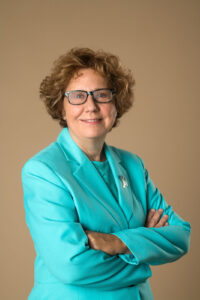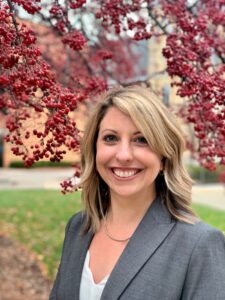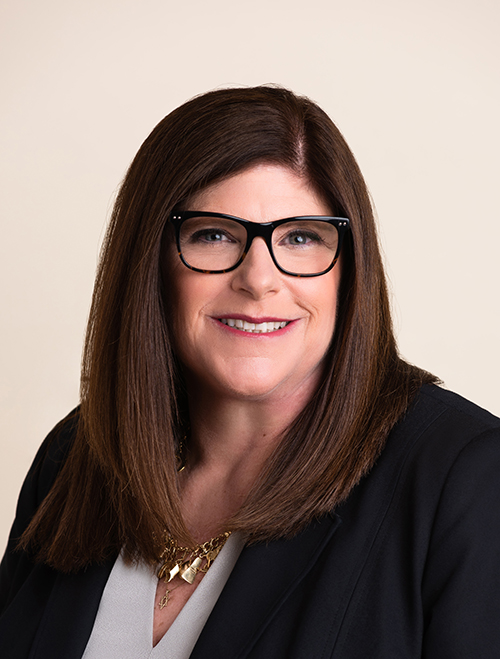LSS announces 2024 Annual Heroes Awardees
Lutheran Social Services of WI and Upper MI has announced the 2024 Annual Heroes Celebration Awardees for the 7th annual Partners Circle gathering: the 2024 Annual Heroes Celebration on Tuesday, November 12th, 2024!
Seats are still available! Email Kelly Nowakowski now to reserve your seat!
The 2024 Civic Hero Award will be awarded to Mike Victorson, CEO of M3 Insurance.
The 2024 Individual Caregiver Hero Award in Honor of Marty Schreiber will be awarded to Lenore Epp, mother, executive, and mental health advocate.
About Mike Victorson
Mike Victorson is the CEO of M3 Insurance, responsible for the strategic direction and vision of the agency, identifying opportunities for growth and innovation, cultivating organizational culture, and serving the community. Victorson serves on the M3 Insurance Board of Directors and is a member of M3’s Executive Operating Committee. Learned business through a variety of roles in customer service, sales, and sales management. Mike is passionate about community involvement and making an impact on a wide variety of industry and charitable organizations. He currently serves on the boards of the Council of Insurance Agents & Brokers (CIAB), Greater Madison Chamber of Commerce, Oregon Community Bank, Wisconsin Manufacturers & Commerce Foundation, and Tetra Defense.
About Lenore Epp
Lenore is a mother of three children, grandmother and a Mental Health Advocate. She works as an Executive Assistant at Sadoff Iron & Metal Co. in Fond du Lac, WI for 13 years. In her spare time she enjoys volunteering at food pantries and homeless shelters. Lenore has also been involved with Big Brothers and Big Sisters. Lenore became a client of LSS in 2023 during a mental health crisis with her daughter Mya.
Click here to learn more about Partners Circle!
LSS Off The Square Club hosts Open House in Madison
Thank you to everyone who attended our LSS Off The Square Club Open House!
We hope everyone enjoyed exploring the newly renovated spaces that provide essential services to those experiencing homelessness, and learn more about how we are helping people take steps toward healing and stability.
A special thank you to Madison Mayor Satya Rhodes-Conway for stopping by to support Off The Square Club!
Thank you to WMTV15 for covering the event! Read more from WMTV15 here: Resource center for Dane Co. homeless and mental health support reopens at new location
Learn more about Off The Square Club and our other Daytime Resources Centers.
Season 2, Ep. 1: Amplifying Sector Voices for Change and Impact
Héctor Colón speaks with Jody Levinson-Johnson in episode two of our second season
Jody Levison-Johnson, PhD, LCSW
Jody Levison-Johnson, PhD, LCSW has over 30 years of experience in human services. She currently serves as the President and CEO of Social Current, an organization focused on advancing the work of the social sector through collaboration, innovation, policy, and practice excellence. Social Current brings together human/social service organizations and partners to leverage their collective experience and research from the field to drive continuous evolution and improvement.
Jody is a longstanding champion for systems change which results in the ability for individuals and communities to thrive. Over several decades, her career has crossed a variety of settings including private providers and state and local governments. Much of her work has focused on cross-sector alignment to benefit children, youth, and families. Jody’s experience leading system reform efforts across the country has prompted her interest in the environmental contexts that surround leadership of deep change in social and public systems.
Jody holds a Master of Social Work degree from Syracuse University and a Master of Arts and PhD in Leadership and Change from Antioch University.
Ep. 10: Champion Leaders Address Justice, Innovation, and Mentorship
High-impact leaders get real In the Ring with Héctor Colón
 Marian Baldini
Marian Baldini
Marian Baldini is the CEO and President of KenCrest, a human services and early learning provider throughout Pennsylvania, Connecticut, and Delaware; that serves over 12,500 people annually. She is an unwavering advocate for the equality and inclusion of people with disabilities, as well as access to early education for all. Marian has over 40 years of leadership in executive planning, administration, academia, and operational oversight; and began her career as a Direct Support Professional in the 1970s, at the same Agency where she now serves as CEO. Throughout her journey she has never lost sight of her “WHY,” and has inspired a shared vision amongst many in the IDD industry for what true inclusion looks like for people with intellectual and developmental disabilities. Marian has testified at legislative hearings on the closures of institutions; rallied for the certification of direct care workers; and published numerous op-eds on innovative service models to offset the nation-wide DSP crisis.
 Kelli Dobner
Kelli Dobner
Kelli Dobner joined Samaritas’ leadership staff in 2017 as Chief Advancement Officer. Her accomplishments include the creation and chairmanship of the IDEA committee (inclusion, diversity, equality, action) including crafting the tier 1 policy, establishing annual goals in this body of work and spearheading organization-wide inclusive culture training, and board development and diversification.
In collaboration with community, corporate and congregational partners, Dobner helped direct a $100M statewide capital campaign, and launched new Substance Use Disorder services across Southeast and Mid Michigan. More recently, she co-founded the Afghan Refugee Network to support the influx of new arrivals. She also has doubled fundraising, and expanded development programming by adding foundation relations, corporate and community engagement, and major events programs to Samaritas. Bringing prior experience as Chief Development Officer of the Judson Center, where she was most proud of creating “a culture of ambassadorship,” Ms. Dobner has built a career on the principles of communication, community-building and concern for the greater good. She also held development positions in the Southfield, Michigan offices of the American Heart Association and the American Diabetes Association.
 Kristyn Peck
Kristyn Peck
Kristyn is Chief Executive Officer of Lutheran Social Services of the National Capital Area (LSSNCA), which was the 2022 recipient of Lutheran Services in America’s Micah award for its work advancing equity and justice. Prior to joining LSSNCA, Kristyn served as the founding CEO of West Michigan Partnership for Children, a nonprofit piloting an innovative performance-based child welfare model. Here, she was named the Michigan Federation of Children and Families Advocate of the Year. Kristyn also served as the associate director of children’s services at the U.S. Conference of Catholic Bishops (USCCB) overseeing national family reunification and foster care programs for unaccompanied children and as chair of the Vulnerable Minors Working Group of Refugee Council USA. Kristyn has also testified before Congress on protection needs for unaccompanied children, and represented USCCB as a subject matter expert on unaccompanied children at the UN Refugee Agency’s (UNHCR) Annual Consultation meetings in Geneva.
Ep. 9: Knocking Out the Real Social Issues in Wisconsin with Governor Evers
Episode 9 of In the Ring with Héctor Colón with guest Governor Tony Evers airs Wednesday October 19, at 12 noon.
High-impact leaders get real In the Ring with Héctor Colón
Podcast guests talk about their challenges with systemic barriers that perpetuate stigma, devalue social programs, and ultimately prevent community-based organizations and the people we serve from thriving.
 More on Tony Evers
More on Tony Evers
On November 6, 2018, the people of Wisconsin voted Tony Evers (Ē-vers) the 46th governor of Wisconsin. Prior to his election, he served as the Wisconsin State Superintendent of Public Instruction winning statewide elections in 2009, 2013, and 2017. With over three decades of public education experience, Governor Evers has dedicated his life to fighting for Wisconsin’s kids and serving the people of Wisconsin.
As a life-long educator, the governor believes in bringing people together to solve the problems facing our state and putting the people of Wisconsin first.
He began his career in 1976 and has served Wisconsin students, parents, and citizens all over Wisconsin in Tomah, Oakfield, Verona, and Oshkosh.
Born and raised in Plymouth, Wisconsin, Governor Evers graduated from Plymouth High School and earned his bachelor’s, master’s, and doctoral degree in educational administration from the University of Wisconsin-Madison. He is married to his high school sweetheart, Kathy, an educator. They are parents of three adult children, all public school graduates, and have nine grandchildren.
Thirteen31 Place Apartments Providing Affordable Housing, Empowerment Services to Residents
MILWAUKEE — Thirteen31 Place Apartments will do more than simply offer affordable housing in Milwaukee’s historic Walker’s Point neighborhood. The goal of the 89-unit apartment building is to uplift the residents through empowerment services intended to help them achieve a sustainable, successful life – in the community and beyond.
(Watch Fox 6 News’ TV story on Thirteen31)
In co-developing and managing Thirteen31, Lutheran Social Services of Wisconsin and Upper Michigan (LSS) is providing people with more than just a roof over their heads. Professionals will assist residents with financial literacy, and use their connections within the community to help residents find jobs, secure medical referrals, and cultivate relationships. These empowerment services seek to improve one’s quality of life and sense of belonging.
As a leader in affordable housing and homelessness prevention, LSS advocates for the “Housing First” model, where securing housing is the first, most important step in rebuilding lives. “Knowing you have a safe, respectable home – with reliable heat, water, central air and attentive management – allows people to focus on other valuable areas of their lives, including their health and careers,” says Dennis Hanson, Vice President of Housing Services for LSS.
Through Thirteen31, LSS hopes to open more detailed dialogue surrounding the importance of affordable housing in building up diverse, equitable, and productive communities.
Seventy-four of the building’s one, two, and three-bedroom apartments are reserved for those qualifying for affordable housing. The remaining units will be rented out at market-rate, creating a unique demographic that serves to strengthen the area and promote future growth. The diverse residents interacting daily – college students, families and business executives, for example – will foster greater understanding and perspective on living and working together for the common good.
Additional amenities and benefits of Thirteen31 include:
- On-site management and maintenance
- Green building, non-smoking community and energy efficient appliances
- Secured outdoor parking
- Minutes from countless restaurants, parks, Water Street, and Milwaukee’s lakefront
The $17.8 million development is on roughly 72,000 square feet of land at 1331 W. National Ave. Applications for leasing apartments will be accepted beginning April 1, with the official move-in day of August 1. In the meantime, individuals can be added to the “interested list” by sending an email to Thirteen.31@lsswis.org and providing their information.
Excerpt from Fox 6 News Story:
Doing more than just handing over keys, a new housing development is being built in Milwaukee — one that plans to help residents with skills that will make them successful.
“The goal is to provide decent, safe and affordable housing in an urban environment,” said Carol Keen, director of asset management for Development and Compliance.
“We’ll have a brand new building; amenities including internet, it’s right on a bus line, there’s parking available, fitness, all sorts of amenities that they might not have in their current living situation,” Keen said.
“We have budget counseling, we can link you to resources, provide you with information about GED,” said Keen. “We also have a preference for veterans. So you can apply and get a preference, and then we can also link you with resources in the community.”
Chippewa Valley nonprofits hope for Giving Tuesday boost
EAU CLAIRE — With needs up and the ability to conduct traditional fundraisers down amid the COVID-19 pandemic, officials from some local nonprofits are hoping for a boost from the global Giving Tuesday movement.
Giving Tuesday, which started in 2012, encourages charitable giving on the Tuesday after the holiday spending sprees associated with Black Friday, Small Business Saturday and Cyber Monday. The efforts are often promoted on social media with the designation #GivingTuesday.
“A lot of nonprofits are struggling more than usual this year, so Giving Tuesday is a great time to start thinking about supporting local charitable causes,” said Sue Bornick, executive director of the Eau Claire Community Foundation.
Chippewa Valley nonprofits are experiencing a surge in demand for services this year in response to economic fallout from the pandemic that includes higher unemployment, lost wages and reduced hours for many workers.
“The needs are real, and they’re right here in the community,” Bornick said.
Andy Neborak, executive director of United Way of the Greater Chippewa Valley, agreed that it’s been a tough year for many people who are struggling financially and for a number of the nonprofit agencies that serve them.
“Some people are needing to ask for help for the first time in their lives,” Neborak said. “That’s where we see higher demand for some of the basic needs stuff.”
Financial contributions are important this year in particular, he said, because nonprofits are facing unprecedented challenges including cancellation of in-person fundraisers because of health risks, higher costs for sanitization of facilities and paying staff for duties previously performed by volunteers, who may be opting out for safety reasons.
While the local United Way is promoting Giving Tuesday, it is focusing more on December as a giving month in a digital marketing campaign seeking donations for its effort supporting 29 different programs in the Chippewa Valley.
“Everything we do stays local,” Neborak said. “Any charitable contributions that can stay local are really important. It doesn’t need to be a huge amount because we’re able to combine those smaller gifts and really make a big impact.”
Among other local organizations seeking to tap into Giving Tuesday generosity are L.E. Phillips Memorial Public Library, which is seeking support for its Story Builder library expansion campaign; Boys & Girls Clubs of the Greater Chippewa Valley, which is continuing to serve local youths despite the pandemic; and Positive Avenues, a Lutheran Social Services program that converted its daytime resource center into a 24-hour-a-day shelter this year, in combination with the Sojourner House homeless shelter, to give the unsheltered population a safe place to go.
The pandemic also brought higher costs for Positive Avenues for increasing staff, providing more meals, acquiring personal protective equipment for staff and guests, buying more cleaning supplies and toiletries, and moving locations twice to enable guests to practice social distancing, said Stephanie Pritchard, Lutheran Social Services’ west regional director for community-based services.
“This year, more than ever, donations are important to our program and to the people we serve,” Pritchard said. “Our guests have more needs now than ever. Trying to stay safe during a pandemic is hard for everyone, but it’s especially difficult when you are homeless.”
For donors who can’t decide which local nonprofits to support but want their charitable dollars to stay close to home, Bornick said the Eau Claire Community Foundation’s Community Fund offers a Giving Tuesday opportunity The fund addresses what she called “the Eau Claire area’s greatest needs” by supporting grants to a diverse array of nonprofits.
Earlier this year, the foundation and United Way created Response and Recovery Funds that awarded grants totaling nearly $1 million for local nonprofits responding to needs generated by the pandemic.
The CARES Act offers an incentive to be extra generous this year, Bornick said, noting that donors can take a deduction of $300 beyond the standard deduction and that a qualified charitable deduction allows traditional IRA owners to lower their adjusted gross income by deducting distributions on tax returns.
Contact: 715-833-9209, eric.lindquist@ecpc.com, @ealscoop on Twitter
Ahead of winter, shelter asks for Giving Tuesday donations
EAU CLAIRE (WQOW) – Many non-profits are thinking ahead to Giving Tuesday, a day dedicated to donating to local charities.
When the pandemic began, Positive Avenues and Sojourner House teamed up to become a 24/7 shelter. Positive Avenues manager, Katie Petska, said in the months since they have found working together has allowed the non-profits to do more than working separately.
During this challenging year, the team has had to move facilities twice, now located at the old Hansens IGA off Clairemont Ave. Petska said going into winter, they expect to see a lot more people using the shelter so the non-profits need donations to help people experiencing homelessness during the frigid months ahead.
“Individuals who are experiencing homelessness, when they have personal supplies shampoo, conditioner, new clothes shoes, things like that even just a new pair of socks, just quickly changes someone’s day and even could change someone’s life,” Petska said.
On Tuesday, f you donate to Lutheran Social Services, which operates Positive Avenues, your donation will be matched up to two thousand dollars.
Funding available for eviction support
Funding available for eviction support
County residents can receive up to $3K in housing assistance
By Nikki Brahm
nbrahm@conleynet.com 262-513-2651
WAUKESHA — Lutheran Social Services of Wisconsin and Upper Michigan (LSS), in partnership with Waukesha County, announced on Thursday they received $295,000 in Community Development Block Grant funding through the CARES Act to offer residents rental, utility and eviction support.
The growing need for housing assistance comes during the COVID-19 pandemic, as residents are facing new challenges, including the end to the extra $600 per month in unemployment benefit assistance, which expires today amid disagreement in Congress about how to prolong it. The statewide eviction moratorium put in place during COVID-19 expired in late May and the moratorium on utility disconnections during COVID-19 expired July 25.
LSS will work in collaboration with Waukesha County to offer residents services that will address these concerns.
Waukesha County residents experiencing housing instability or eviction due to COVID-19 can apply for up to $3,000 in rent and utility payments while grant funding lasts.
Eligible households must live in Waukesha County, have an annual household income that is 80% of the area median income and must have proof of a W9 signed by the landlord and a landlord agreement that financial assistance is needed.
This funding will support about 100 households.
Vice President for Housing Services/Facility and Asset Management Dennis Hanson said the role of LSS is to receive the initial applications, ensure the individual and their place of residence are qualified, and help provide the funds to have the individual remain in their current home.
“We’ve been encouraging individuals that we work with all along, even during the moratorium, to be in contact with their landlords and to try to work out payment arrangements,” Hanson said. “We’re really just trying to make people aware that the moratorium really did not forgive the funds that were owed; it just put a limited period where no action could be taken.”
Hanson said individuals who are evicted have a harder time getting another rental due to screening.
“I’m sure that there’s going to be more need than the 100 households that can be served at present,” he said. “I do not anticipate any problem filling all 100 slots.”
LSS provides other services as well, including housing services and skills programs.
To access these funding resources tenants can call 855-397-9520 or visit www.waukeshacounty.gov/communitydevelopment to begin the process. They are encouraged to leave a message and LSS staff will call them back to walk them through the next steps.
For more information on LSS housing programs, visit www.lsswis.org/housing.
“The county has been a wonderful partner in this and we’re just thrilled to be working with them to impact the residents of Waukesha County in a positive way,” Hanson said.
‘No matter when they call, I pick up’: Mental health workers see increased demand for treatment, support
Ivy Zamora, a therapist with Lutheran Social Services, primarily serves children with mental health challenges. But increasingly, she’s hearing from their parents, too.
“There’s a frustration and helplessness that sets in that can be overwhelming for people,” Zamora said.
Zamora isn’t deterred. She is setting up phone and video calls with the kids she normally sees at their schools, and their families. She’s listening and sharing coping mechanisms, while also connecting families with resources for food, gas money, school supplies and other needs through the new LSS Response Fund.
Zamora and hundreds of mental health workers around Wisconsin are finding creative ways to stay in touch with patients and expand what they offer while anxiety rises and traditional support services shut down.
Health experts say it’s too early to tell how extensively the pandemic is impacting mental health but there are already indications of rising symptoms of anxiety and depression, and more calls to support lines.
At Children’s Hospital, a greater portion of youth coming to the emergency room are being treated for self-inflicted injuries, compared to this time last year, according to Amy Herbst, vice president of mental and behavioral health.
“I can’t say it’s necessarily caused by isolation but we certainly believe there’s a correlation,” Herbst said. “There are tremendous stressors in many families’ lives right now.”
Dr. Jerry Halverson, chief medical officer at Rogers Behavioral Health, said the hospital has seen increased demand for inpatient mental health care as other avenues narrow.
Milwaukee County’s public behavioral health hospital, which recently confirmed several people on the campus had tested positive for COVID, shut down its children’s unit from March 16 to April 23.
Halverson said patients are reporting difficulties reaching their usual mental health providers. He said patients are also avoiding other hospitals out of fear of COVID-19. This can cause symptoms to escalate.
“COVID has uncovered a lot of folks that had depression and anxiety prior to this,” Halverson said. “It’s been very stressful and it’s not surprising we’re seeing continued and increased demand for psychiatric treatment.”
The Waukesha Police Department, which provides details about police calls to the Journal Sentinel, has responded to more emergency calls related to mental health. Some callers have specifically noted challenges with isolation or cohabitation during the pandemic.
Baumann said unless someone is urgently suicidal, Waukesha police officers are referring callers to IMPACT 2-1-1 and other community resources.
But with day treatment programs closing, therapists locking their doors, and hospitals pivoting resources to COVID-19 treatment while being more cautious with admissions, many of the traditional routes for mental health support are unavailable.
Video therapy now broadly available
As orders for isolation started sweeping the country, mental health providers knew they needed a way to keep in touch with patients. Some had already experimented or were well practiced with tele-health platforms that allow providers to securely and privately talk with patients via video.
But there were barriers. Before the pandemic, Medicaid only paid for tele-health in specific circumstances. Patients had to be at a clinic, hospital or nursing home while calling their provider. And the provider had to work for a certain type of clinic.
On March 17, dozens of mental health advocacy organizations and practitioners signed a letter asking state officials to remove those barriers. Officials responded. Patients can now video-conference with their providers from home — whether the provider works for a clinic or works independently.
These changes will be permanent beyond the pandemic, a spokesperson for the state Department of Health Services said.
‘That existential feeling of loneliness’
Tele-health has been vital for Zamora, who serves students in United Community Center’s charter schools. It’s allowed her to keep in touch with families in possibly the most critical time, while day treatment programs and hospitals are taking fewer mental health patients.
One parent Zamora works with, an undocumented immigrant, was laid off from her restaurant job and is caring for both her child and her mother. She’s been without income for several weeks.
“For her there’s an increase in anxiety and some depressive symptoms,” Zamora said. “That existential feeling of loneliness in the world and feelings of isolation from co-workers and friends. And now people are counting on you and you can’t meet their needs.”
Zamora hopes the mother will benefit from the LSS Response Fund. And Zamora is trying to help her shield her child from the stress as much as possible.
“The virus has strained families in a different way than they may have historically experienced stress in the past,” Zamora said. “We’re trying to do a good job of helping kids not absorb and internalize those adult concerns.”
As tele-health becomes the primary, and sometimes only, way to access a therapist or psychiatrist, some patients are left behind because of limited internet or technology.
In central Wisconsin, therapist Kris Koplitz has recommended some families park outside libraries to access internet for therapy sessions.
In Milwaukee, providers at Sixteenth Street Clinic have found some clients are running out of minutes on their phones and lacking computers, tablets or smart phones to access other tele-health platforms, said Maria Perez, vice president of behavioral health.
‘No matter when they call, I pick up’
With some long-time mental health supports suddenly disrupted, mental health providers are working long hours to ensure their clients don’t feel alone.
Our Space stopped taking new residents at Parachute House, a temporary residence for people in emotional distress, but reopened April 27. The organization also closed its drop-in center which offered support groups and other services.
Our Space workers like Mark Ploeckelman, Jr., are still visiting clients and setting up calls.
“No matter when they call, I pick up,” said Ploeckelman, a certified peer specialist who coordinates care for residents of Highland Commons in West Allis, an apartment building for people with mental illness and substance use challenges.
“They can call me at 3 a.m. and I’ll get up out of dead sleep and be like, ‘Hello this is Mark.’ And they’ll be like, ‘I can’t believe you picked up, I thought you’d be asleep.’ And I’m like, ‘I was, but you called.’ “
Ploeckelman said residents have been wanting to go to hospitals for inpatient care more often than usual, and he’s trying to calm them down and keep them safe at home when possible.
“I want them to know I’ll be there every day as normal as I can be,” he said.
Koplitz, who serves students in the Colby and Abbotsford school districts, has also found ways to stay connected to families.
Koplitz usually uses her office plants as props for mindfulness exercises. Now that she’s switched to tele-health, she gives her students a list of natural materials, like twigs and rocks, to find and bring to their video appointment, at which they will practice mindful observation with the five senses.
Campos, who works as a nurse and has legal guardianship of the children, said Zamora has helped her children practice patience and empathy.
“I’m the one that gets the benefits because they’re doing so well at home,” Campos said. “It’s a blessing and I hope more families that need the help are able to access it.”
Zamora said while the pandemic has caused deep stress, it has also illuminated the strong relationships neighbors have built to support each other financially and emotionally.
“These families have historically had to rely on each other,” Zamora said. “There’s a lot of banding together, sharing of resources. There’s really a lot of tenderness.”
Mental health resources
Crisis lines
- Milwaukee County 24-hour crisis line: 414-257-7222. When needed, a mobile team can meet adults and adolescents anywhere to talk and connect them to resources.
- Pathfinders 24-hour line for youth in crisis: 414-271-1560
- National Suicide Prevention Lifeline: 1-800-273-8255
- National Domestic Violence Hotline: 1-800-799-7233
- HOPELINE: For emotional support, text “Hopeline” to 741-741
Other resources
- IMPACT 211: Call 2-1-1 for information and referrals to a wide range of community services
- Sixteenth Street: Call 414-672-1353 to set up an appointment with a mental health provider
- Milwaukee Health Department: Domestic Violence & Sexual Assault Resources
- National Alliance on Mental Illness: COVID-19 Resource and Information Guide
Rory Linnane reports on public health and works to make information accessible so readers can improve their lives and hold officials accountable. Contact Rory at (414) 801-1525 or rory.linnane@jrn.com. Follow her on Twitter at @RoryLinnane.

